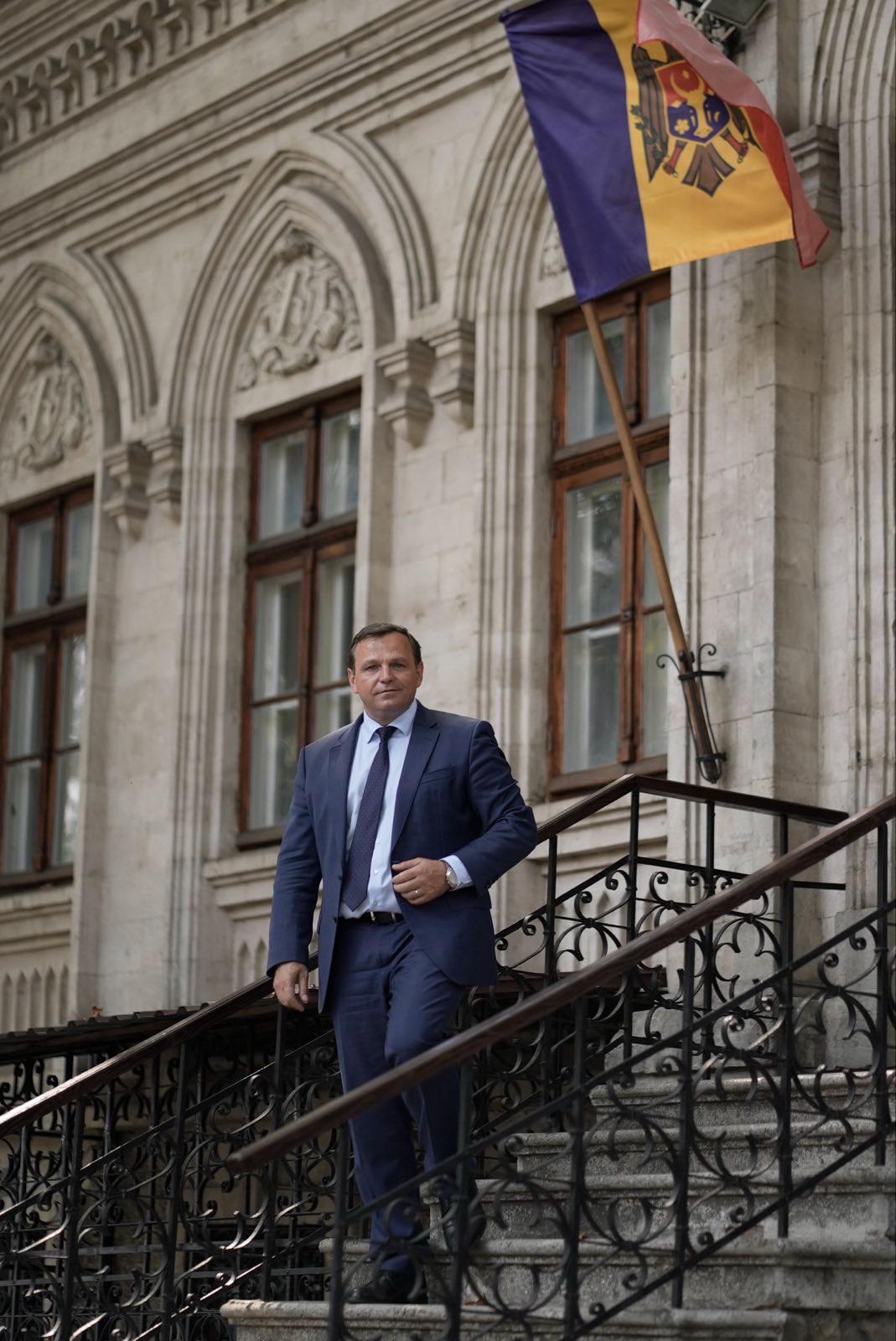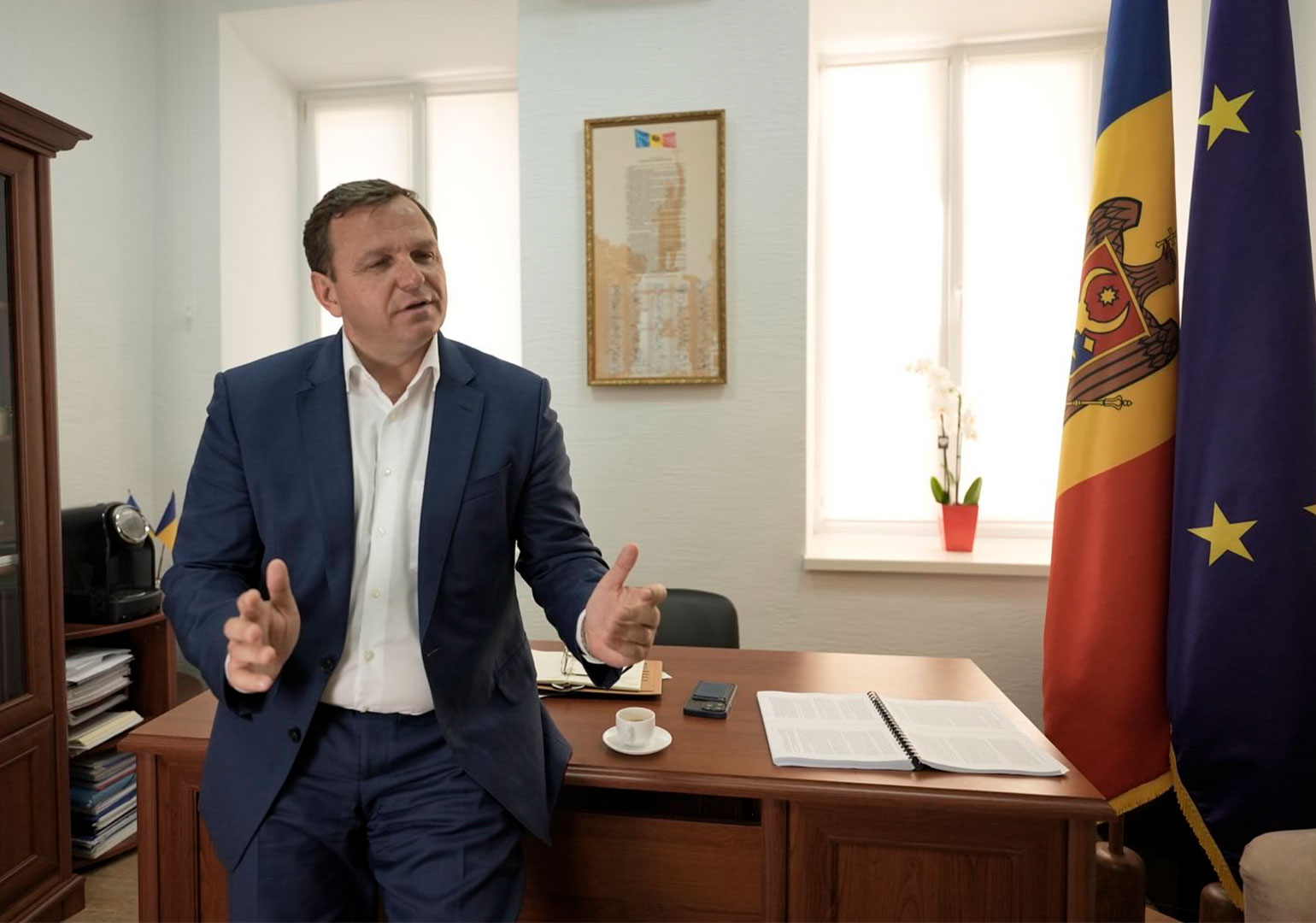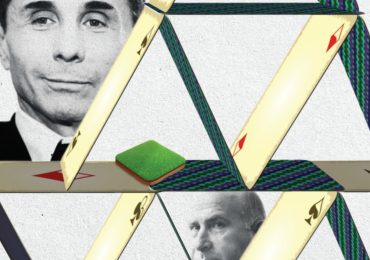Moldovan politics is currently undergoing a transformative phase, marked by shifting alliances and emerging challengers. At the forefront of this change is Andrei Năstase, a center-right politician known for his grassroots activism and strong stance against oligarchic influence in Moldova.
Maia Sandu, the current President of Moldova, came to power on a wave of optimism and promises of sweeping reforms. Sandu, a pro-European Union leader, has emphasized the importance of judicial reforms and anti-corruption measures. However, her administration has faced criticism for perceived slow progress and failure to dismantle entrenched corrupt systems. Despite these challenges, Sandu remains a significant figure in Moldovan politics, representing stability and a pro-Western orientation.
Andrei Năstase, on the other hand, is a former ally of Sandu and a notable figure in Moldova’s political arena. He co-founded the Dignity and Truth Platform Party (DA), which played a pivotal role in the protests against the oligarchic regime led by Vladimir Plahotniuc. Năstase’s activism and leadership in these protests earned him considerable public support. However, after stepping back from the political limelight, Năstase is now making a comeback, positioning himself as a strong challenger to Sandu.
“Democracy and the rule of law has a difficult road in Moldova. The threats of violence we faced were really stressful and I was very worried about my family. These powerful people also misuse the law. The oligarchic regime blocked me from being mayor despite my winning because on election day, I urged people to go out and vote,” Năstase remarked, highlighting the intense challenges he has faced.

Năstase’s return is driven by a growing disillusionment among voters who feel that Sandu has not delivered on her promises. His re-emergence is particularly significant as it signals a potential shift in the political dynamics of Moldova. Năstase is leveraging his past success in mobilizing citizens against corruption and oligarchy to build a new platform that resonates with a broad spectrum of the electorate, including right-wing, centrist, and even some left-leaning voters.
Năstase’s commitment to Moldova has come at great personal cost. His family was harassed and separated for eight years due to the dangers he faced from powerful oligarchs and criminal networks. Despite these challenges, he continued to fight, showing a resilience that resonates with many Moldovans.
The contrast between Sandu and Năstase is stark. While Sandu is often viewed as methodical and reliant on international support, Năstase is seen as a dynamic, fearless leader with a hands-on approach. Năstase’s reputation for integrity and his direct involvement in anti-corruption campaigns enhance his appeal, especially among voters frustrated by the slow pace of reform under Sandu.
Năstase’s political journey is marked by significant challenges, including the controversial annulment of his 2018 mayoral victory in Chisinau. The decision, widely criticized as an abuse of power by the oligarchic regime, led to prolonged street protests and condemnation from the international community. His ability to persevere in the face of such adversity has only bolstered his standing among his supporters.
“I uncovered operations involving the Russian mafia. This scheme funnelled billions of dollars through Moldova using at least 21 shell companies which fabricated debt claims in Moldovan courts, which were then used to transfer funds to Moldovan banks and subsequently to banks in different countries,” Năstase revealed, underscoring his deep involvement in battling corruption. His credibility as an anti-corruption crusader was solidified through his investigation into the ‘Russian Laundromat,’ a massive money laundering scheme that funneled billions of dollars through Moldova.
Năstase is acutely aware of Moldova’s strategic importance in the ongoing geopolitical contest between the West and Russia. His strong pro-European stance, coupled with his focus on integrating Transnistria through dialogue, positions him as a key figure in shaping Moldova’s future direction amid these tensions.
Năstase’s re-entry into politics could reshape the political landscape in several ways: his presence provides a credible alternative to Sandu, potentially revitalizing the opposition and forcing the government to accelerate its reform agenda. His grassroots approach emphasizes civic involvement, which could lead to increased political participation and a more active civil society. Năstase’s campaign is likely to push issues such as judicial reform and anti-corruption to the forefront of political discourse, putting pressure on Sandu’s administration to deliver tangible results. Additionally, the support Năstase garners from various political factions could lead to new alliances and a realignment of political forces in Moldova.
Throughout his career, Năstase has consistently campaigned against the entrenched oligarchic influence that has plagued Moldova. His investigations into corruption and his firm stance against these forces underline his long-standing commitment to creating a transparent and democratic Moldova.
Andrei Năstase’s potential to reshape Moldovan politics hinges on his ability to mobilize the disillusioned electorate and present a viable alternative to Maia Sandu. His track record of fighting oligarchic influence and his grassroots approach position him as a formidable challenger. As Moldova navigates this critical juncture, the political interplay between Sandu and Năstase will be crucial in determining the country’s future direction and its commitment to genuine reform and democratic principles.
S
















